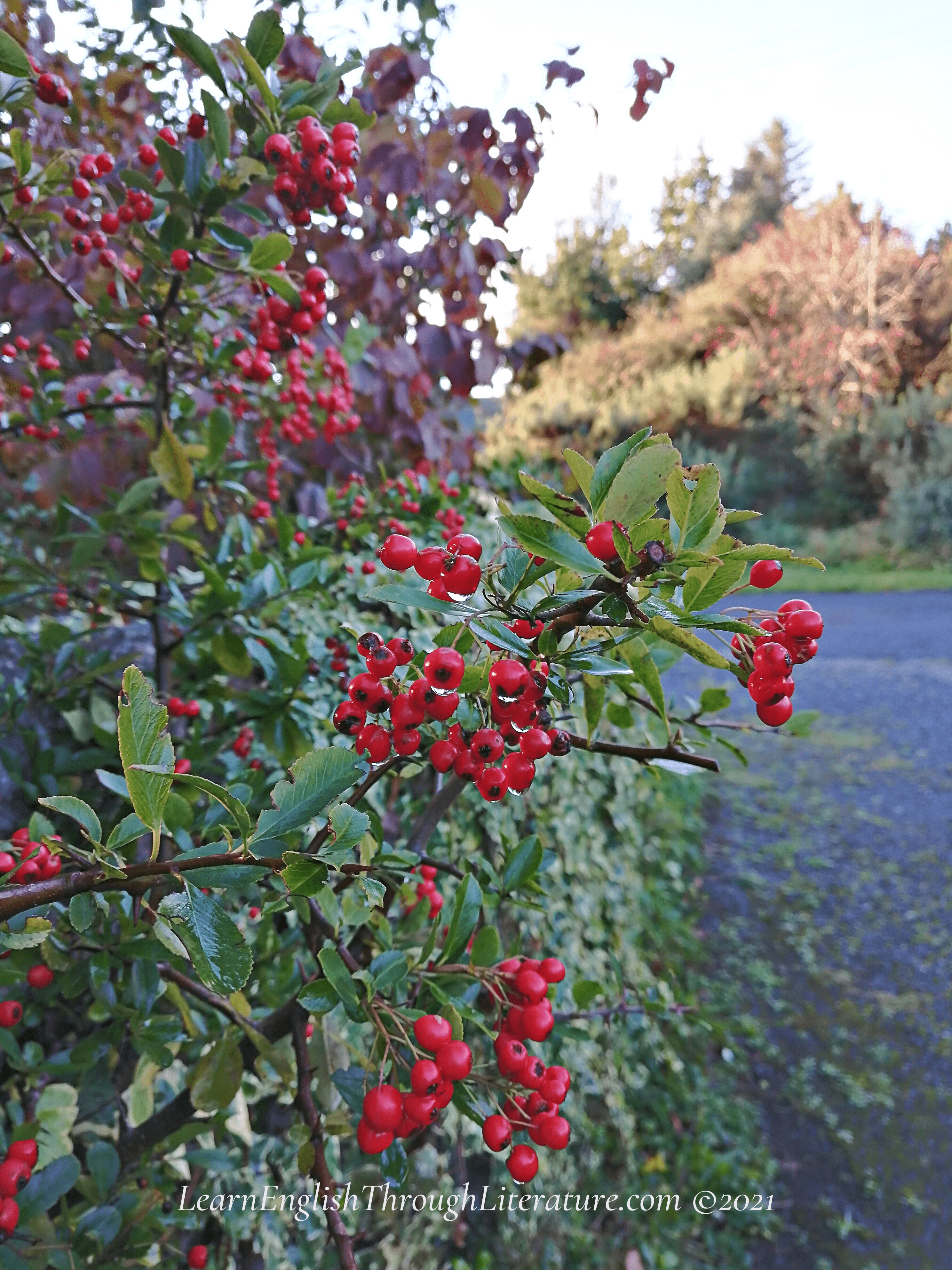As we draw close to the first anniversary of these regular Learn English through Literature Lessons, I thought it would be a nice celebration to read and reflect on inspiring English language poetry this week. 📚
As you will see, some of the poets we are considering are less well-known, so all the more reason to bring them into the spotlight and ‘bask’ in their sunshine! (The verb ‘to bask’ simply means ‘to lie exposed to sunshine and light, for pleasure and relaxation.)
This morning the dew drops on these berries in my garden (as you can see in today’s feature image) brought to mind a simple yet beautifully evocative and colourful poem by the English-born, Canadian-based poet, Joseph Horatio Chant.
He was born in Somerset, England, in 1837, but when he was three years old his family emigrated to Canada where he would live for the rest of his life. As a young man, he first worked as a teacher but eventually left this career to become a United Church minister. He and his wife had many children and lived a life of service, moving from one village church position to another across Canada for decades. It was only when he was 78 years old, living alone with his daughter (his wife had passed away), that he published a book of his own poems called Gleams of Sunshine (1915). He went on to live until the age of 90, a gifted man who, in his quiet way, left a unique impact on English poetry.
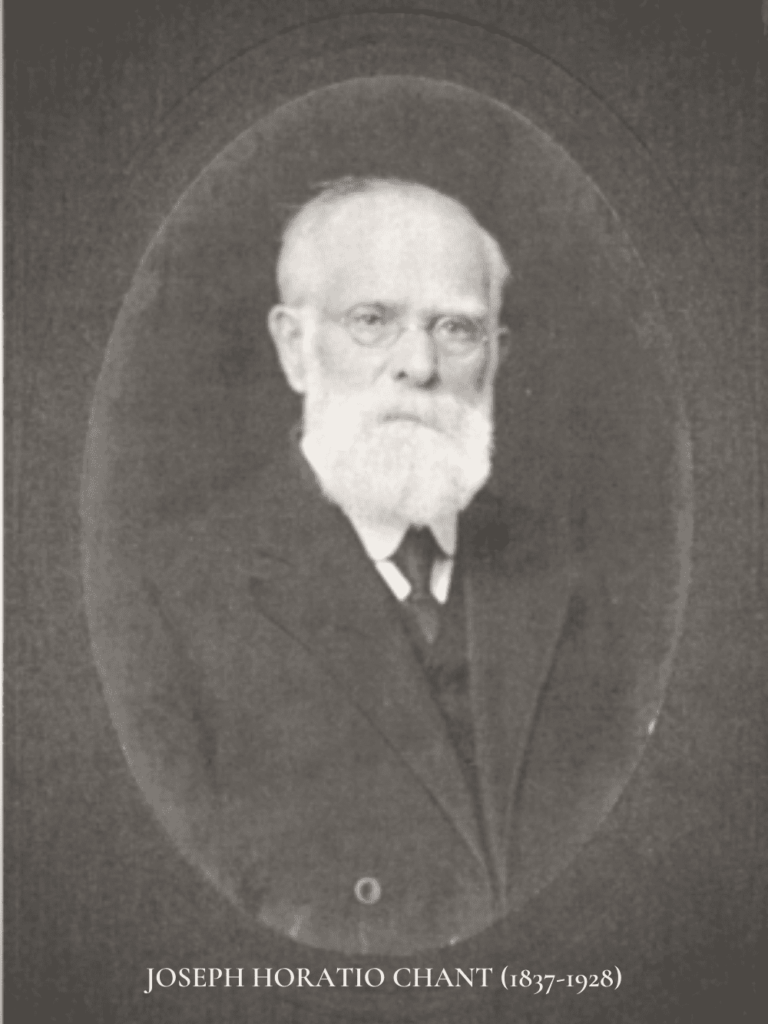
If you are looking for good English poems to memorise to help you speak English more naturally with good vocabulary, this is such a poem for you.
✏️ Don’t worry if you don’t understand all the words it contains, however. I have provided a short vocabulary list to elucidate (make clear) these words below.
…
📜 ‘Late Autumn’
by Joseph Horatio Chant
The fields lie bare before me now,
The fruit is gathered in,
Not even seen a grazing cow,
Nor heard the blackbird’s din.
The heath is brown, and ivy pale,
The woodbine berries red,
And withered leaves borne on the gale
Sink down on peaty bed.
At morn the fence was covered o’er
With a pale sheet of rime;
The earth was like a marble floor,
But now is turned to grime.
For Autumn rains are falling fast,
And swells the running brook;
The Indian Summer, too, is past;
For snowfall soon we look.
…
📝 VOCABULARY LIST
lie bare: [They] are empty, without growth. ‘Bare’ means ‘empty’ or even ‘naked’, depending on the context.
gathered: < to gather: to collect and bring together
grazing: [describing an animal’s eating habits] to eat grass in a field. This comes from the verb ‘to graze’ which means the same thing; that said, it is not to be confused with another meaning of ‘to graze’, which means ‘to lightly scrape the surface of the skin and cause a slight wound’.
blackbird: a garden bird with black plumage (feathers) and producing distinct, musical birdsongs. It is commonly found in Britain and Ireland.
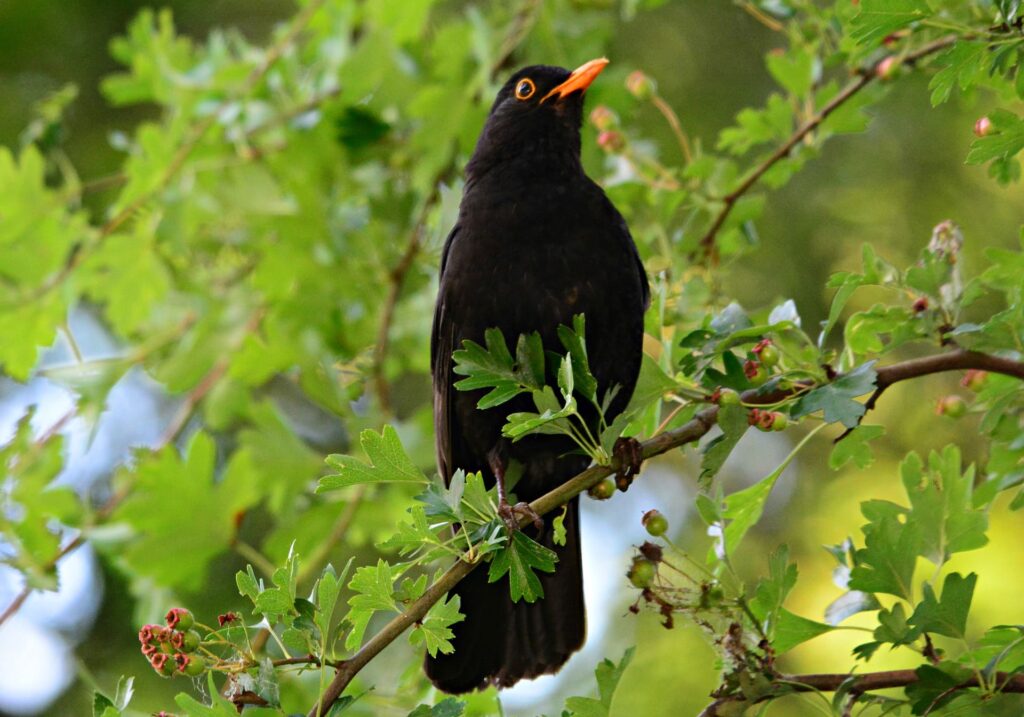
Image: courtesy of MabelAmber (Pixabay)
din: loud, prolonged noise
heath: a boggy, shrubland habitat (often found in parts of Ireland, Scotland, and the north of England) with very few plants except for heather, grasses, and moss. The soil under the grass is generally water-logged and acidic.
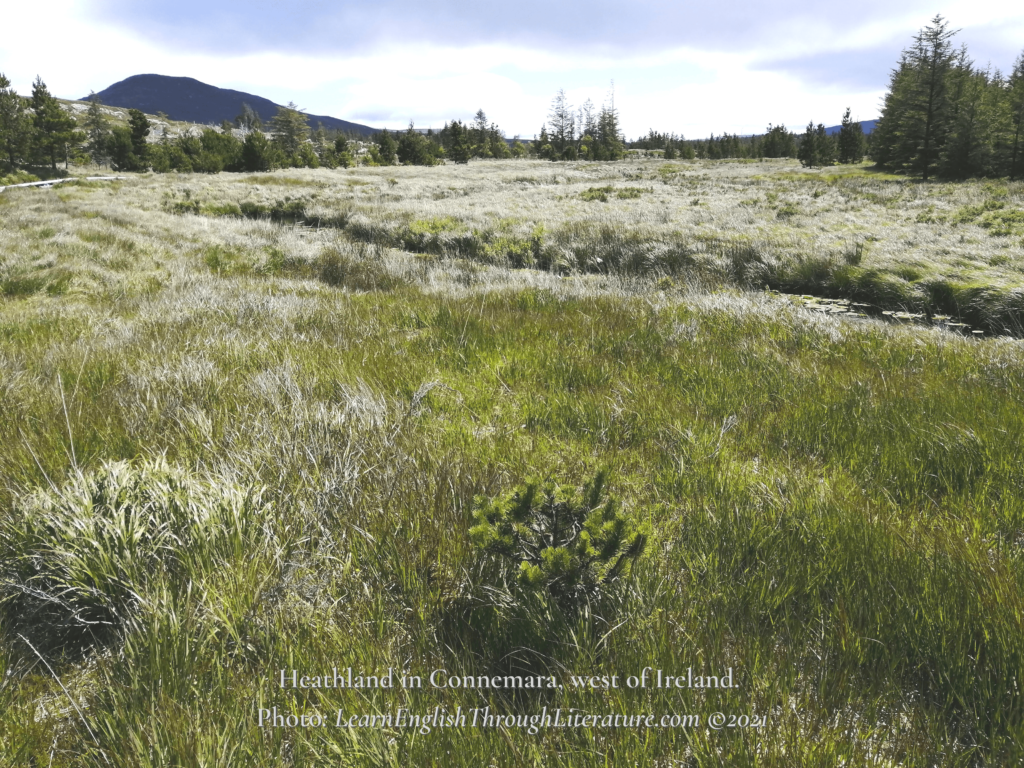
ivy: a creeper plant that grows on walls or trees, with triangular leaves (usually dark green, sometimes with a streak of yellow or even – like Boston Ivy or Virginia Creeper varieties – all in red)
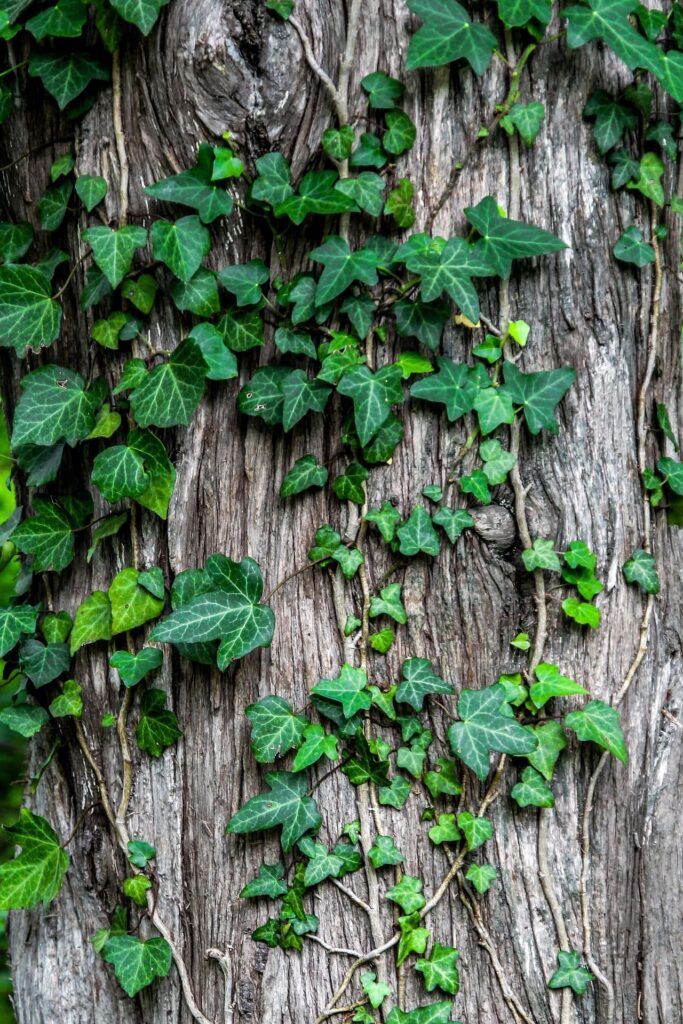
Image: Pixabay
pale: with very light colours
woodbine: (UK) common honeysuckle plant; (US) a Virginia creeper
withered: [describing a plant] curled up and dry because it is dead
borne: (archaic/old-fashioned) something that has been carried by or on something else
gale: a strong, stormy wind
peaty: made of peat, or acidic black soil that is full of water; bogland soil.
morn: (poetic) morning
fence: a wooden or metal structure made from sticks or beams that marks a boundary and stops people or animals from crossing it.
o’er: (poetic) over
sheet: a slim, broad cover
rime: frost that forms on cold objects through the freezing of the water vapour around it.
marble: a hard, colourful rock, often with streaks of white or black colour, that is famously used to make pillars and other architectural structures.
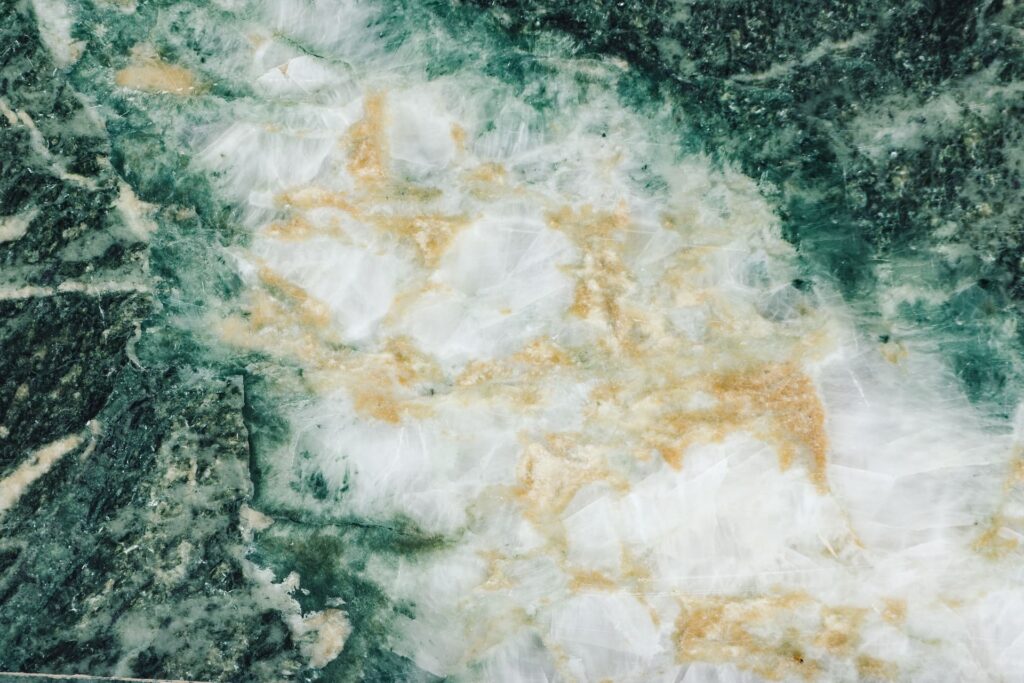
Image Credit: Lala V, from Pixabay
grime: dirt that is ingrained in the surface of something
swells: < to swell: to cause to grow bigger (because of water, air, etc.)
brook: a small stream
Indian Summer: an unusually late summery, warm spell in the middle of autumn
snowfall: the falling of snow
…
As you will have seen, most of the new vocabulary in our list relates to nature and the kind of countryside with which the poet was familiar. 🌳
✍️ That said, why not re-read the poem once more and search for 3 words (or more, if you like) that you can add to your vocabulary and practice using this week?
Here are some sample sentences using my words of choice:
- Her face turned pale when she heard the news.
- I couldn’t sleep well last night because the loud noise of the gale kept me awake!
- Where is that din coming from? It is very annoying … Ah, I see now that there is some drilling going on in that construction site nearby.
- I went shopping but didn’t buy what I needed because the shelves were empty and bare!
- She hurt her foot and soon had a swollen ankle (swollen is the past participle of the verb to swell).
- Robert Frost, the famous American poet, wrote a poem about how ‘good fences make good neighbours’.
- The kitchen in the old cottage was a mess, with grime under the tiles and dust everywhere, but we made sure to clean it up when we arrived.
- Those flowers were beautiful when we got them last week, but they have now withered away!
- We were surprised to have a beautiful Indian summer last October – we were able to wear our summer clothes again for a few days!
- I enjoy buying herbal teas from a good English tea company called ‘Heath & Heather’.
So have you chosen your three words? Now that you have visualised this poem with its images, have a handy vocabulary list, and some sample sentences from me, this can be one easy way to enrich your vocabulary with a few words! 📝

